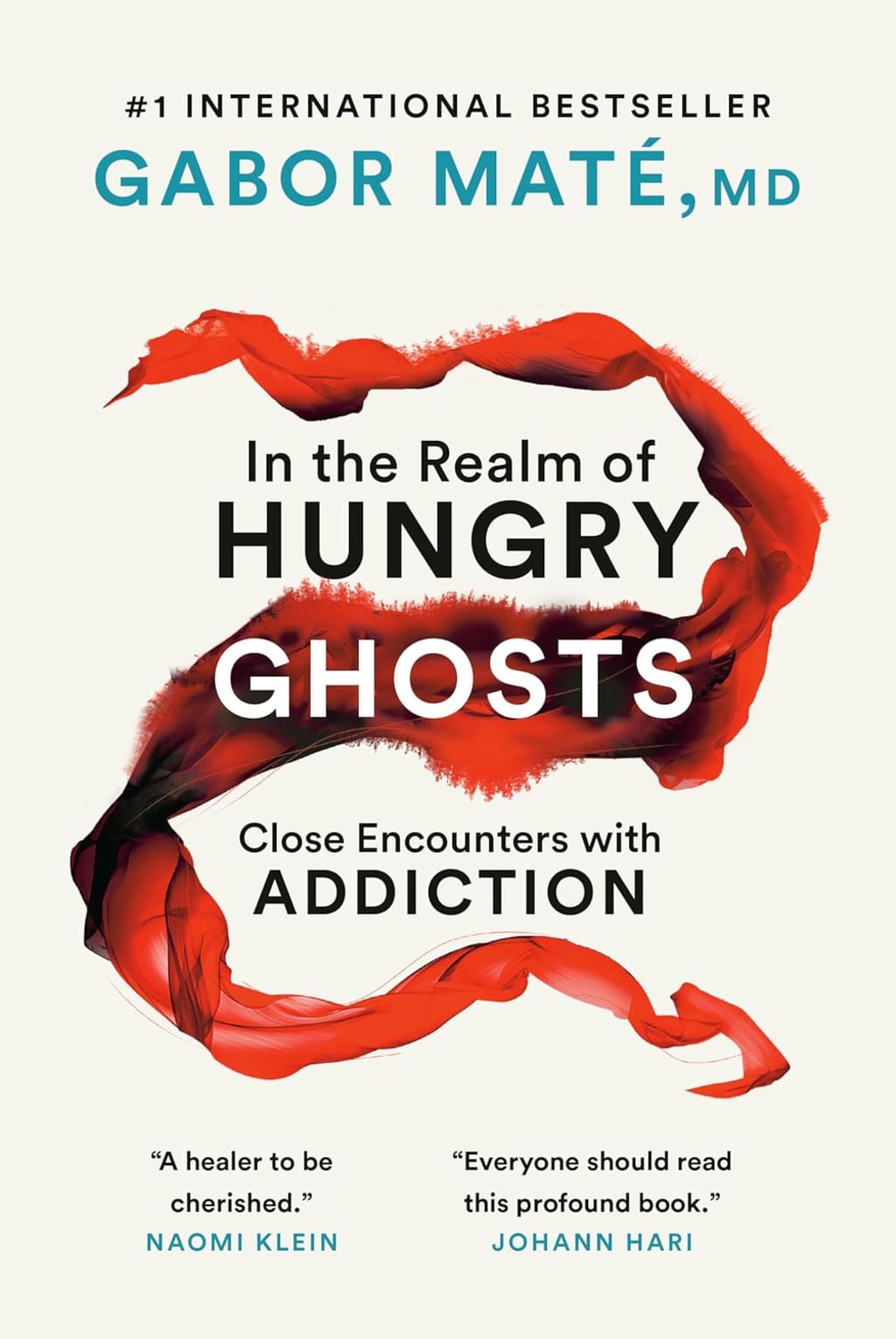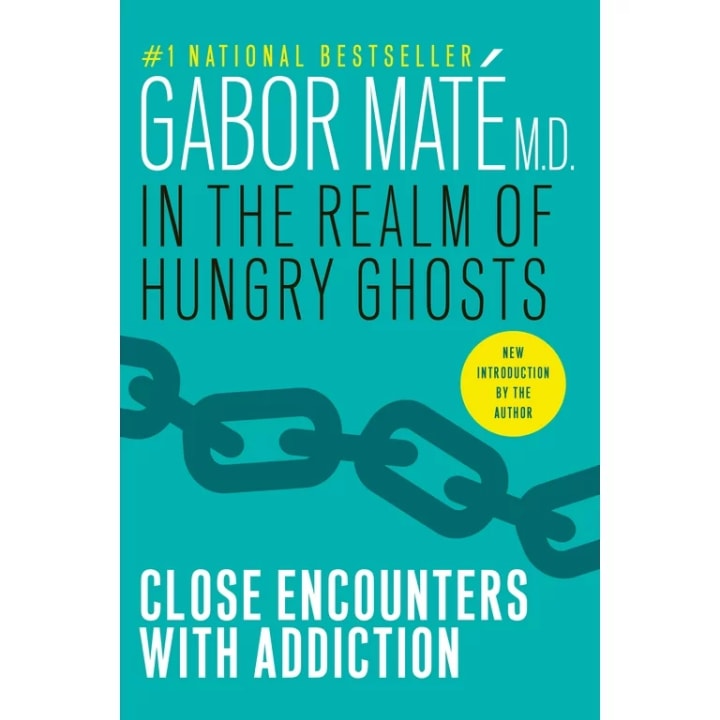Book Review: "In the Realm of Hungry Ghosts" by Gabor Mate
3/5 - some generalisations, but some great insights too...

At the core of every addiction is an emptiness based in abject fear. The addict dreads and abhors the present moment; she bends feverishly only toward the next time, the moment when her brain, infused with her drug of choice, will briefly experience itself as liberated from the burden of the past and the fear of the future—the two elements that make the present intolerable.
- 'In the Realm of Hungry Ghosts' by Gabor Mate
I read The Myth of Normal by Gabor Mate and honestly, there were some good points that I had seen, but a lot of it seems a bit far-fetched or has an argument that can be easily seen through. What I mean is that though I find reading Gabor Mate really quite eye-opening, there are things that either don't really add up or generalisations that don't tend to make sense. Gabor Mate might be a smart guy and really popular in the realm of trauma and addiction, his research seems to suggest that everything is caused by childhood trauma and that nothing can be down to contextual routes taken whilst turning towards adulthood. This is something I have found that is similar in his book In the Realm of Hungry Ghosts.
In the first two sections he spends a long time talking about childhood trauma and honestly, I understand it. People who have higher levels of abuse in childhood tend to be more prone to becoming addicted. He blames this on the unresolved trauma in the lives of the people who suffered this abuse. The problem I have with this rhetoric is that in his book The Myth of Normal, he also says that this sort of unresolved trauma causes cancers and heart disease and a bunch of other stuff. I think this is really quite a stretch. Yes, it causes stress to be released at a higher rate, but so do a bunch of other things. Not everything is childhood trauma.

Another thing I thought was a bit off about this book was where he does the military study about addiction and even after saying that drugs themselves are not addictive, some people have addictive personalities - he still goes on to use the phrase 'drugs with addictive qualities'. It seems like he is going back on himself and when he states that 50% of the soldiers using heroin in the Vietnam War did not become addicted to the drug and thus, were off the drug after the war ended there is really one thing I thought. What if part of the half were ones who came back and got off the drug through means of rehabilitation rather than just not being addicted. I don't think he can put this down the addictive personalities in horrifying situations. It seems like a generalisation.
However, I do think that he is correct in stating that people who have hereditary predispositions to addictions tend to become addicted to things, whether that is drugs and alcohol or food etc. The image of the brain in an MRI will also be different to those who are not addicted to anything. Be that as it may, if we are to take The Myth of Normal against this book then all of our brains would look somewhat addicted to something, or somewhat traumatised by something. He also writes about dopamine as being part and parcel of what an addict is using. Dopamine is the 'happiness' chemical in the brain and therefore, the more you use a drug the less dopamine actually happens because of tolerance. But initially, it will be the fact that dopamine opens up and shoots out. This just decrease over time. This I agree with because, well it's just common sense.
One of the things I really liked about this book though is the way he actually talks about the idea of addiction in the addict. (Part of the quotation can be found at the beginning of this review even though the section itself is much longer). There is something about the past that is burdensome on the human being and thus, there is a fear of what happens in the future. He describes it as people 'losing touch with their souls' and falling into a black hole. He then goes on to state that our culture of consumerism and isolation has only deepened this black hole and it is the reason for our incessant activity and our requirement to always be on. It is both a product of our times and ironically, a reaction against it. This I found was a really great description.
All in all, though I think this book has some obvious talking points and also has some weird generalisations - I do think it makes some good points about addictions in the third part of the text. It's a deep analysis of how addicts are created as products of their environments and thus, teaches us that "people jeopardize their lives for the sake of making the moment livable." So, what does that say about our environment?
About the Creator
Annie Kapur
200K+ Reads on Vocal.
English Lecturer
🎓Literature & Writing (B.A)
🎓Film & Writing (M.A)
🎓Secondary English Education (PgDipEd) (QTS)
📍Birmingham, UK






Comments (1)
Maybe the Vietnam vets were so adrenaline pumped the heroin didn’t affect them as much as some who were frozen in fear and used? I do believe that stress can cause illness and cancer- if the body is continually in the fight or flight mode it wreaks havoc with the nervous system and main organs. Not a book I want to read but I appreciate your review!